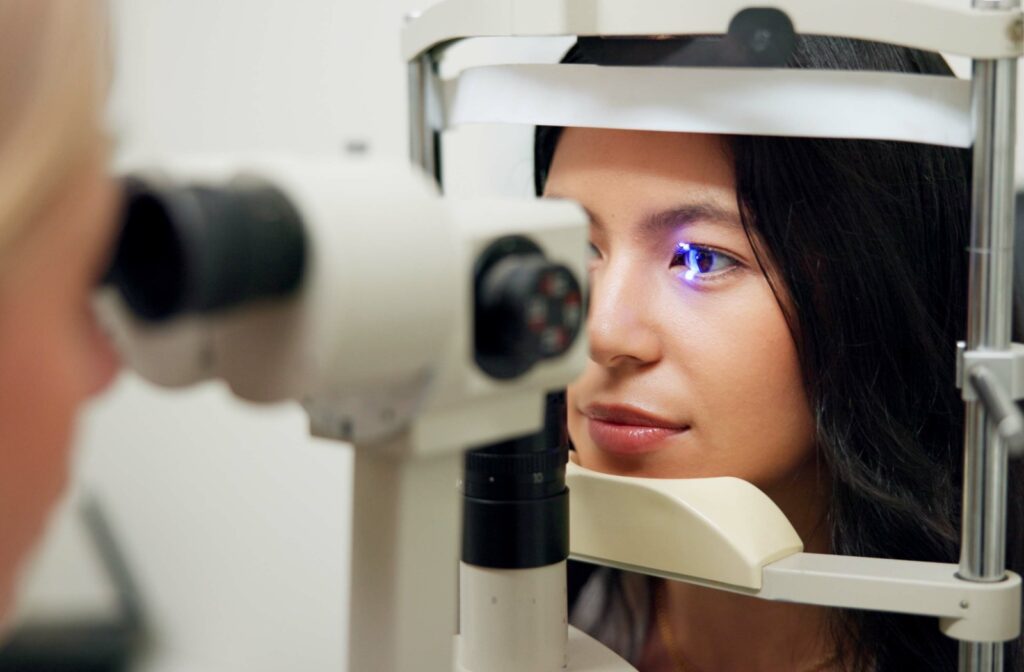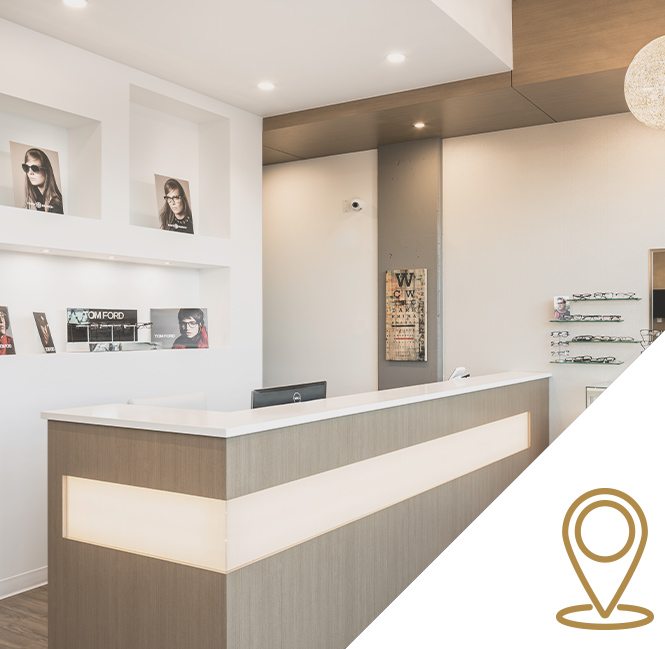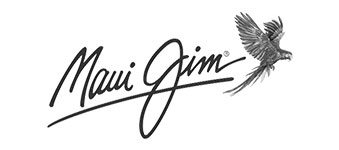Myopia, commonly known as nearsightedness, is a vision condition where close objects are seen clearly, but distant ones appear blurred. It’s a prevalent refractive error affecting millions of people worldwide. But can it be reversed? This question has sparked much debate among eye health enthusiasts and researchers alike.
Although research on total myopia reversal is still ongoing, the condition cannot currently be reversed. However, there are a few strategies that can assist with myopia control and possibly even slow down its progression. Let’s explore the current understanding and potential pathways toward myopia reversal and ways it can address your eye health.
Understanding Myopia
Myopia, commonly known as nearsightedness, occurs when the eye’s shape causes light rays to bend (refract) incorrectly, focusing images in front of the retina rather than on the retina itself. This happens because the eyeball is either too long, or the cornea is too curved, which results in blurry distance vision while near objects remain clear.
Contributing Factors
Factors contributing to myopia include:
- Genetics (myopia often runs in families)
- Excessive screen time or other tasks that require prolonged focus on close objects
- A lack of outdoor activities, which are believed to help with proper eye development.
- Long axial length (length of the eye from front to the back). Our office has technology to measure axial length.
Current Treatments for Myopia
While myopia cannot be reversed, several approaches to controlling myopia can help manage and potentially slow down its onset and progression:
1. Corrective Lenses
Glasses and contact lenses are the most common and immediate solutions for correcting myopia. Glasses and contact lenses work by refocusing light directly onto the retina, allowing for clearer vision by compensating for the eye’s inability to focus sharply. Something to note is that normal lenses can make myopia worse over time in young patients that are still developing. Specialty lenses for slowing down myopia progression are recommended for children.
2. Orthokeratology (Ortho-K)
Ortho-k lenses are rigid gas-permeable contact lenses that are specially designed to be worn overnight, during which time they gently reshape the cornea. The benefits of ortho-k lenses disappear once use is discontinued, but they have been shown to slow the progression of condition.
3. Pharmaceutical Interventions
Pharmaceutical interventions such as low-dose atropine eye drops have been shown to slow the progression of myopia in children significantly. While these drops don’t reverse the condition, they help manage its advancement, offering a potential preventive measure.
Regular use is necessary, and is often recommended as part of a broader strategy to control myopia in conjunction with lifestyle and environmental modifications.
4. Refractive Surgery
LASIK and PRK: These surgical procedures permanently reshape the cornea to correct refractive errors. LASIK (Laser-Assisted In Situ Keratomileusis) and PRK (Photorefractive Keratectomy) are effective in correcting myopia, hyperopia, and astigmatism. While it does not reverse myopia, surgery can improve vision and dependency on glasses or contact lenses.
Patients considering these procedures undergo thorough evaluations to determine their suitability and expected outcomes. Note, however, that surgeries are usually only considered for adults.

Emerging Research & Myopia Reversal
The concept of myopia reversal continues to evolve with scientific advancements. Researchers are exploring various avenues, including:
Lifestyle Modifications
Increasing children’s outdoor time has been associated with a reduced risk of developing myopia. Engaging in outdoor activities allows exposure to natural light, which is believed to stimulate healthy eye development. Additionally, focusing on distant objects during outdoor play can prevent or slow the progression of myopia.
Genetic Research
Gene therapy and regenerative medicine are emerging fields with the potential for the future reversal or management of myopia. Scientists are exploring innovative approaches to alter the genetic factors that contribute to the development and progression of myopia. Regenerative medicine techniques aim to repair or replace damaged tissues, while gene therapy seeks to modify the genetic blueprint responsible for myopia, offering hope for long-term solutions.
Ready to Consider Myopia Reversal Options?
While myopia reversal may not be possible at present, various treatment approaches and lifestyle modifications are able to slow the progression of the condition.
If you’re curious about managing your myopia or exploring potential treatments, consider consulting with Willoughby Doctors of Optometry in Langley, BC and book your next appointment today. With the right approach, you can protect your vision and enjoy clearer sight.











